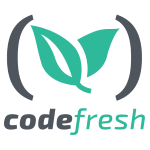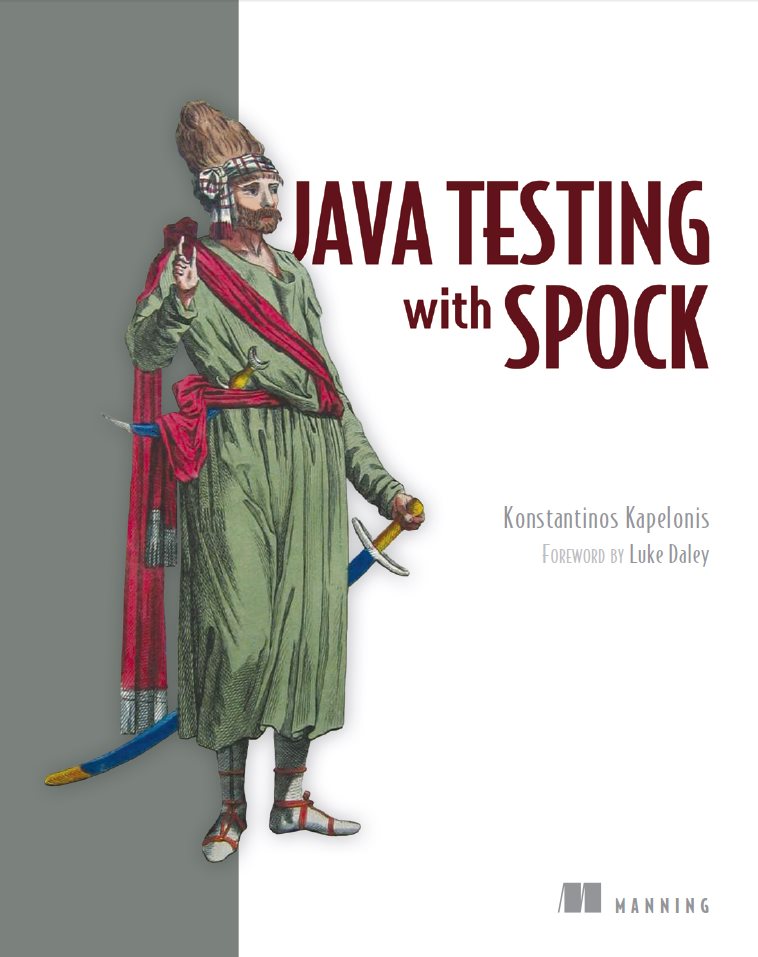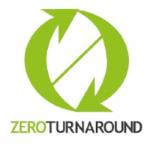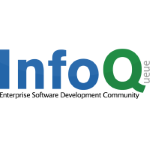Code Pipes Those who can, do and teach!
Collaboration with Codefresh 2018-today 
Codefresh is a CI/CD solution built with native Docker, Kubernetes and Helm support. Unlike other traditional solutions Codefresh was created from scratch with support for containers (it even includes a private docker registry), declarative pipelines, deployment dashboards etc.
I am working as a developer advocate writing blog posts and documentation. Here are some samples:
- Docker anti-patterns
- CI/CD Pipelines for Microservices
- Using Docker from Maven and Maven from Docker
- Enterprise CI/CD Best Practices
- Kubernetes Deployment Antipatterns
- Stop Using Branches for Deploying to Different GitOps Environments
- Understanding the Difference Between CI and CD
- Unlimited Preview Environments with Kubernetes Namespaces
- How to Preview and Diff Your Argo CD Deployments
Collaboration with Armory 2017-2018 
Spinnaker is the newcomer in the continuous delivery arena. It was open-sourced by Netflix as a multi-cloud deployment tool. Spinnaker is one of the first and only applications that is built for cloud deployments from the ground up.
It also supports natively the blue/green deployment strategy as well as canary deployments, features that until recently required special scripts and glue code. Spinnaker supports all major cloud providers (Amazon, Azure, Openstack etc) and even native Kubernetes integration implemented by Google itself.
Armory was the company behind Enterprise Spinnaker support. They also offered extra Spinnaker integrations on top of the basic OSS distribution, specifically tailored for large companies that want to move to the cloud. I wrote guest blog posts for Armory:
- Spinnaker is not a Build Server (and other misconceptions)
- How Spinnaker fits into the Continuous Delivery puzzle
Both articles were originally published at the Armory company blog, but since Harness acquired Armory in 2024, I have since reposted them on my personal blog.
Collaboration with SemaphoreCI 2016-2017 
SemaphoreCI is a hosted continuous integration company similar to Travis. I was already aware of them while researching my mega comparison of hosted CI services.
In 2016 they read my Spock book, liked it and contacted me in order to write articles for their huge library of testing tutorials. I accepted and so far I have written 4 Testing/CI tutorials for them! Three of them have been in the top ten of the respective year. The RestAssured tutorial is one of the most commented tutorials.
If you are looking for a hosted CI service, I can highly recommend them. For the full details consult the mega comparison that compares SemaphoreCI with 11 competitors in the same sector.
- How to Split JUnit Tests in a Continuous Integration Environment
- Testing REST Endpoints Using REST Assured. This was in the top 10 tutorials for 2016 among all SemaphoreCI articles.
- Stubbing and Mocking with Mockito 2 and JUnit. This was one of the top 10 tutorials for 2017 among all SemaphoreCI articles.
- Stubbing and Mocking in Java with the Spock Testing Framework. This was also one of the top 10 tutorials for 2017 among all SemaphoreCI articles.
Collaboration with Manning publications 2014-2015 
In 2014, Manning noticed my Spock article and asked me to write a full book on the topic. Of course I accepted! Manning is a legend of technical books and I have learned a lot by their huge collection on Java topics.
My book is titled "Java testing with Spock". It is aimed at Java developers entrenched in JUnit, and it will attempt to convince them that Spock is an one-stop-shop for all testing needs. Unlike JUnit, Spock also has built-in mocking/stubbing support and favours a BDD style when describing test fixtures. Combined with the expressive power of Groovy (and the power assert killer feature), Spock is an explosive package that can replace/augment/accompany existing JUnit tests in a much more concise way
- Java Testing with Spock at Manning
- Free chapter 1 in PDF format
- Free chapter 3 in PDF format
- Amazon US
- Amazon UK
- Source code of the book
- Manning Author forum for feedback
Collaboration with ZeroTurnaround 2013 
While working for InfoQ I also covered JRebel and LiveRebel, products of ZeroTurnaround. As part of the process I interviewed Oliver White the marketing guru of the company (at the time). We talked while drinking beers, and I started writing for RebelLabs (the community building part of ZeroTurnaround). I wrote blog posts for any topic I liked and helped with the detailed programming reports.
I really enjoyed my time with ZeroTurnound because of the freedom I had while choosing topics and writing about them. After the rigid structure of InfoQ, I could finally inserts jabs and puns in my articles! Here is a full list of my articles:
- 10 common pitfalls of experienced Java developers and architects (My most controversial post)
- Using Spock to test Groovy AND Java applications
- The Adventurous Developer’s Guide to JVM Languages – Clojure
- The correct way to use integration tests in your build process
- How to mock up your Unit Test environment to create alternate realities
- Don’t Test Blindly: The Right Methods for Unit Testing Your Java Apps
- Why Your Next App Will Probably Suck Without Unit Testing
With the transition to the JRebel product some of my articles are not published on their blog any more and I have reposted them locally
Collaboration with InfoQ 2011-2013 
In 2011 I started working for InfoQ. I already liked the site as a reader because of their objective writing and the no-marketing-crap attitute when covering press releases. At several points in time I simply disregarded the official release of a product and went straight to InfoQ in order to read the actual details. The team at InfoQ are mostly programmers themselves so they can see behind the marketing buzzwords and actually explain the technical facets of various topics.
I too specialized in product releases for Java software. Even though the news posts are not lengthy, writing them was always a challenge because I had to verify/research with no actual documentation at hand (the products were just released). I wrote more than 30 news posts for various topics. Here is a sample selection:
- Spring Migration Analyzer: An Assistant For JavaEE To Spring Conversion
- ModelMapper: An Object To Object Mapping Library
- Dagger: A Dependency Injection Framework For Android
- CRaSH: An Extensible Command Line Shell For Monitoring A Running JVM
- An Alternative Build System: Gradle 1.0 Released
- CloudBees Releases Jenkins Enterprise
- Restfuse 1.0.0 - A Library For Easy REST/HTTP Integration Tests
- Updating Web Applications Running In Production with LiveRebel 2.0
I was so mindblown when researching Chronon that I ended up writing a full featured article on recording debuggers.
Pro Bono writing work
I love explaining complex things with simple language. Sometimes I also think that in todays internet, valuable information is lost in the sea of advertisements and popups. Here is a list of writings I did just for fun
- Enlightenment Foundation Libraries Documentation 2006 (I am really proud for this guide) - PDF - SGML source
Series of articles in the Greek Linux online Magazine
- Simple PC security for Aunt Tillie 2005-2007 (In Greek)
- Guide to X-Windows 2006 (In Greek)
- GNU Texinfo tutorial 2002 (In Greek)
- Blender 3D Introduction 2001 (In Greek)
Really old commentary in Operating System News
- The Rise (And Fall?) of Application Stores 2011.
- Enlightenment Libraries Reach 1.0 2011
- Moving Away From WIMP Interfaces One Step at a Time 2006
- The desktop is changing but to what? 2006
- Regarding High Level Computing 2004
Academic work
Tagged Procedure Calls (TPC): Efficient runtime support for task-based parallelism on the Cell Processor (2010) was a paper I co-authored as part of my work in FORTH-ICS. It uses the Cell processor of the Playstation 3 as a core platform for parallel C code. I wrote bare metal code for this project (truly exciting stuff!). Read it in PDF format
Translating formal proofs into English (2004) was my postgraduate thesis in the University of Swansea. Implemented in Scheme it was a module of the Minlog interactive proof system. It used as input mathematical proofs and it produced a human-language explanation of the proof. This is the time I learned about functional programming (an eye-opener experience). Read it in PDF format
Compact Flash Linux Block driver (2003) was my dimploma thesis in the University of Crete. It explains the implementation of a block device driver for the 2.4.x Linux kernel. The driver is for a compact flash disk reader soldered in an embedded Linux board. Read it in PDF format